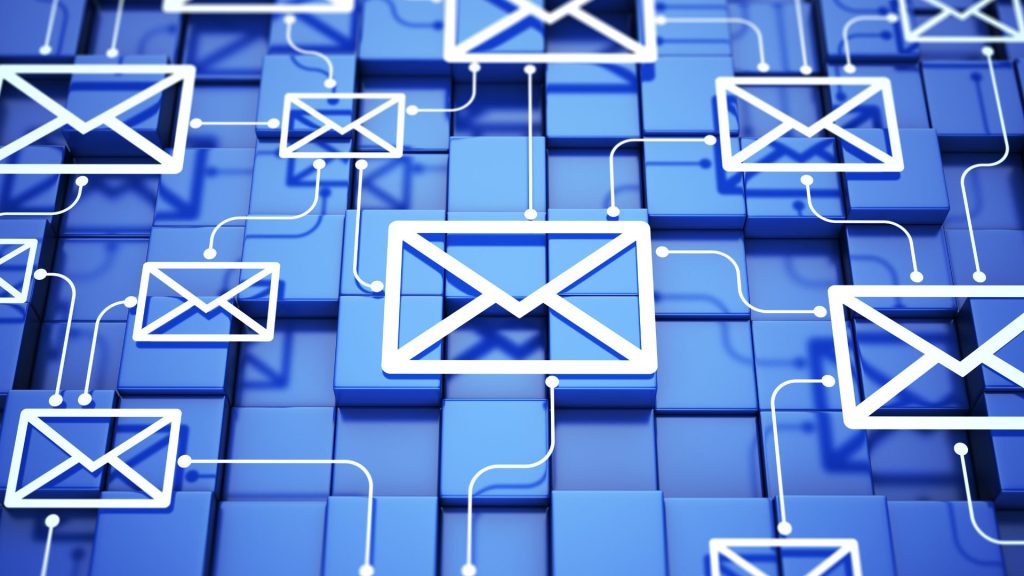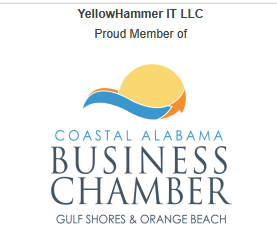The Tale of Two Email Choices
Imagine two business owners: One uses a generic email (@gmail or @yahoo) and the other uses a custom domain email that matches their website name (@name of business)…let’s see what happens in this fateful tale:
Sarah, the owner of a small boutique store called Fashion Haven, wanted to kickstart her business so she created a quick, free Gmail account, FashionHavenStore@gmail.com, to manage her communications with suppliers, customers, and partners. It was easy to set up and didn’t require any upfront investment. She liked the familiar interface and felt that the general public would easily recognize a Gmail account.
On the other side of town is Jack, who runs a similar boutique named Urban Styles. He opted for a custom domain email that matched his website: Jack@urban-styles.com, right from the start. He saw the email as an investment, aligning it with his business website and brand name. He believed that his email address should be as professional as the clothes he sells.

Fast forward a few months, and both Sarah and Jack have been diligently running their boutiques. Sarah started noticing that her emails to potential high-value clients and suppliers were either going unnoticed or not getting the response she anticipated. She felt her business was not being taken as seriously as she had hoped. Jack was experiencing higher engagement rates with his emails. Clients appreciated the professionalism that a custom domain email exuded, and suppliers took him seriously from the get-go. The email itself became a marketing tool, reinforcing his brand each time he sent out a message.
While Sarah’s generic Gmail account was quick and easy to set up, it inadvertently sent a message that her business was small-scale and possibly temporary. On the other hand, Jack’s decision to use a custom domain email projected a sense of permanency and investment in his brand, inspiring more confidence in his communications.
This simple but crucial difference in their choices of email accounts had ripple effects in how both Sarah and Jack’s businesses were perceived, affecting their professional relationships and, ultimately, their success. In this scenario, the difference between using a generic email and a custom domain email evidences the pros and cons of each choice. A seemingly minor decision (email) can have a significant impact on the way a business is viewed by its audience.

Pros & Cons of Generic vs. Custom Email
When it comes to business communication, email remains one of the most reliable and widely used platforms. The importance of a reliable email service for businesses can’t be overstated. Let’s compare some of the pros and cons of using a generic email account versus an email account that matches your domain name. For more about email, check out our article: Why Using Email with Your Domain Name Matters
Generic Email Account
- Cost-Effective: Usually free or inexpensive to set up and maintain.
- Easy to Manage: No need to worry about hosting or maintaining a server.
- Quick Setup: Can be set up in minutes, without technical expertise.
- Lack of Professionalism: An email address like yourbusiness@gmail.com doesn’t project the same professional image as one that matches your domain.
- Limited Control: You’re at the mercy of the email provider for security features, uptime, and data control. Any company stakeholder using a generic email account could win the lottery and leave and all of their communications could be irretrievable.
- Lack of Accountability: A generic email address could be set up by anyone, which can be a cause for concern for potential clients or partners.
- Professional Credibility Issues: Customers might find a generic email less trustworthy.
Custom Domain Email Account
- Perception of Professionalism: An email address that matches your domain name signals to your clients or customers that you have a established business infrastructure, including a domain that likely hosts a company website. On the other hand, a generic email can sometimes create an impression of being makeshift or temporary.
- Branding Consistency: An email that matches your domain name aligns closely with your brand, making your communication appear more cohesive. Your email becomes a marketing tool, reinforcing your brand each time you send an email.
- More Control: Greater control over security features, backups, and other functionalities. You can ensure all communications from all company stakeholders is captures and archived for future need.
- Business Longevity and Seriousness: A custom domain email indicates an investment in the business, implying that the organization plans to stick around for a while. In contrast, a generic email might imply the opposite — that the business is new, small, or not fully invested in its operations.
- Easier to Remember and Associate: A custom domain email that aligns with your business name is often easier for clients to remember and associate with your products or services. A generic email address might not offer the same level of memorability or direct association.
- Cost: There is usually a cost associated with setting up and maintaining custom domain emails. Email packages that are affordable for your business size and usage can be customized with YellowHammer IT, LLC.
- Technical Skills Required: Unless you’re using a managed service, you’ll need some technical expertise to set up and manage your custom email. This is where YellowHammer IT, LLC can help.
10 Types of Email Services
Now that you’ve considered the pros and cons of generic vs. custom email services, let’s explore some of the common types of email services you can expect from a managed service provider (MSP). Each of these email services addresses a specific need and contributes to the overall efficiency, security, compliance, strategy, and professionalism of business communications. YellowHammer IT, LLC can help you with these types of email services and much more!

1. Hosted Email Solutions
With hosted email solutions, businesses can outsource the management of their email servers to a specialized provider. This takes the technical burden off the business and ensures secure, fast, and reliable email services.
Outsourcing the complexities of email management allows businesses to focus on their core operations. It ensures consistent uptime and reliability, which are critical for smooth business communication. Moreover, service providers usually offer scalability features that can adapt as your business grows.
2. Cloud-Based Email
Cloud-based email services store your email data on remote servers, accessible via the internet. This allows for seamless access to your emails from multiple devices and locations.
The flexibility and accessibility provided by cloud-based email services are particularly important for businesses with remote or dispersed teams. It allows for real-time collaboration and ensures that business continues as usual, even if physical offices are inaccessible.
3. Secure Email
Secure email services offer enhanced security features like advanced encryption, two-factor authentication, and malware protection to safeguard your email communications.
Cybersecurity threats are a constant concern for businesses. Secure email services provide an extra layer of defense against data breaches and unauthorized access, which is crucial for maintaining client trust and protecting sensitive information.
4. Email Backup & Recovery
These services automatically back up your email data and offer easy recovery options in case of accidental deletions or data loss incidents.
Business continuity is key. Consider how much time and money it would cost if all of your email went down for just a few hours, or if you were unable retrieve these important communications. Having a reliable backup and recovery service ensures that valuable data is never lost, and business operations are minimally impacted in case of data loss incidents.
5. Email Archiving
Email archiving services retain and secure email data for specified periods, often to meet legal or regulatory compliance requirements.
Compliance with legal standards is crucial for maintaining a reputable business. Archiving services not only help with compliance but also offer an organized way to store and retrieve old communications, which can be valuable for audits, legal cases, or institutional memory.
6. Spam Filtering
Spam filtering services automatically screen incoming emails to separate legitimate communications from spam or potentially harmful messages.
Spam emails can be more than just an annoyance; they can also carry security threats like malware. An effective spam filtering service increases productivity by reducing the time employees spend sorting through irrelevant or dangerous emails and adds an extra layer of security against phishing attacks and other cyber threats.
7. Email Migration Services
Email migration services assist businesses in transitioning their email data, contacts, and configurations from one platform to another. This could be from an on-premises server to a cloud-based solution, or between different cloud providers.
As businesses grow, their email requirements may change, necessitating a switch to a different email platform that offers better features, security, or cost-effectiveness. Email migration services make this transition smooth and hassle-free, ensuring no loss of critical data and minimal disruption to business operations. It allows companies to adopt newer technologies without the fear of losing valuable historical communication or facing downtime.
8. Email Marketing Platforms
Email marketing platforms help businesses automate, manage, and analyze their email marketing campaigns. These platforms often come with templates, analytics, and integrations with other software.
Effective email marketing can significantly boost customer engagement, loyalty, and revenue. These platforms allow businesses to professionally manage large-scale campaigns, segment their audience, and measure the effectiveness of their strategies through detailed analytics.
9. Collaboration & Shared Inboxes
Collaboration services offer shared inbox features that enable teams to manage a common email address, like support@company.com, together. Team members can assign, track, and collaborate on emails to ensure timely and consistent responses.
For customer support or any team-based communication role, a shared inbox can be crucial for managing workflows and ensuring high levels of customer service. It allows for transparent sharing of email responsibilities among team members and can improve internal communications.
10. Email Signature Management
Email signature management services help businesses standardize and control the email signatures used across the organization. These services ensure that all outbound emails carry a consistent and professionally branded signature.
Consistent branding is key to professional business communication. An email signature management service ensures that all employees represent the company in a uniform way, adding credibility and making it easier to include essential business information, like legal disclaimers or promotional banners, in every sent email.

Final thoughts...
Choosing the right email service is a crucial decision for any business. Understanding the pros and cons of using a generic email versus a custom domain email will help you make an informed decision that best suits your business needs. YellowHammerIT, LLC is a Managed Service Provider (MSP) providing custom domain accounts and email services for all sizes of businesses needing solutions to their email needs. Contact us to set up a free consultation to discuss your business email needs.
More Articles...

A Guide to Website Development & Hosting for Business Owners

AI Integration and Your Business: Opportunities, Considerations, and Policies

Answer Engine Optimization (AEO): Unlocking AI-Driven Visibility for Your Business

Artificial Intelligence (AI) and Your Business

Automating Outcomes Assessment

Brand Discovery: Unlocking Your Website’s Vibe
Build Courses Faster in Canvas LMS: Strategies to Boost Efficiency

Common Pain Points for Universities



